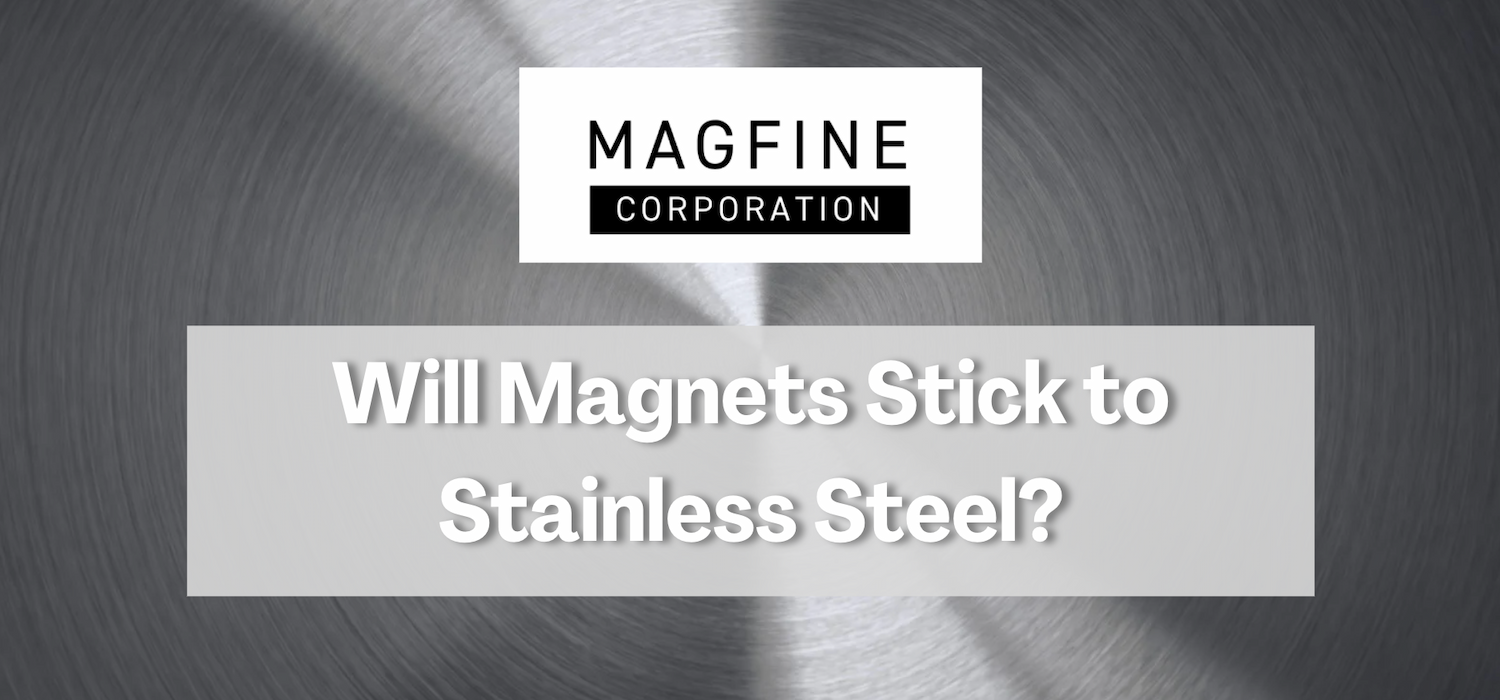What Makes Stainless Steel Unique?
Stainless steel is an alloy primarily composed of iron, chromium, and sometimes nickel. This composition gives it its hallmark resistance to rust and corrosion. However, not all stainless steels are created equal. Depending on the type, their response to magnets varies significantly, a key factor to consider for industries or individuals using magnets in Canada.
The Different Types of Stainless Steel
Understanding the magnetism of stainless steel starts with its classification. Here’s a quick breakdown:
1. Ferritic Stainless Steel
Ferritic stainless steels, like grades 409 and 430, are magnetic. Their body-centered cubic (BCC) structure allows magnets, such as neodymium magnets, to adhere strongly. These types are common in kitchen equipment and automotive components.
2. Austenitic Stainless Steel
Austenitic stainless steels, including popular grades like 304 and 316, are generally non-magnetic due to their face-centered cubic (FCC) structure. However, cold working or mechanical deformation can introduce slight magnetic properties. These grades are widely used in appliances, medical tools, and industrial applications.
3. Duplex Stainless Steel
Duplex stainless steels combine the properties of ferritic and austenitic steels, resulting in partial magnetism. Magnets like industrial-grade neodymium magnets may stick to these steels, but the strength of the attraction will vary.
Testing Stainless Steel Magnetism
If you’re unsure about the magnetic properties of a piece of stainless steel, a simple test with a magnet can reveal a lot. A neodymium magnet, known for its exceptional strength, is an excellent tool for this test. Here’s what you might find:
- Strong Attraction: Likely ferritic stainless steel.
- Weak or No Attraction: Likely austenitic stainless steel.
- Partial Attraction: Possibly duplex stainless steel.
Why Does This Matter?
Understanding the magnetic properties of stainless steel has real-world implications. For instance, industries in Canada relying on industrial magnets for manufacturing or sorting need precise material compatibility. Additionally, hobbyists and DIY enthusiasts using magnets for home projects benefit from knowing which materials will provide the best performance.
Neodymium Magnets: The Game-Changer
Neodymium magnets are some of the strongest magnets available today. Their high magnetic strength makes them ideal for applications requiring a secure hold, even on partially magnetic surfaces like duplex stainless steel. At Magfine Corporation, we offer a wide range of neodymium magnets designed for both industrial and personal use, ensuring unmatched performance for magnets in Canada.
Choosing the Right Magnet for the Job
When selecting a magnet for your project, consider the type of stainless steel you’re working with. For instance:
- Use neodymium magnets for ferritic and duplex stainless steels where a strong hold is needed.
- Avoid relying on magnets for austenitic stainless steels unless minimal magnetic interaction suffices.
Final Thoughts
Will magnets stick to stainless steel? It depends on the type of stainless steel and its properties. Ferritic stainless steel is highly magnetic, austenitic is mostly non-magnetic, and duplex falls in between. For those in Canada seeking high-quality magnets for industrial or personal applications, Magfine Corporation has you covered. Explore our extensive range of neodymium magnets to find the perfect solution for your needs.
Q&A Module
Q: Why don’t all magnets stick to stainless steel?
A: Stainless steel’s magnetism depends on its structure and alloy composition. Austenitic stainless steels, for example, are generally non-magnetic due to their atomic structure.
Q: Are neodymium magnets suitable for stainless steel?
A: Neodymium magnets work exceptionally well with ferritic stainless steel and can provide some hold on duplex stainless steel. However, they may not stick to austenitic stainless steel.
Q: Can I use magnets in Canada for industrial applications?
A: Absolutely! Industrial magnets, including neodymium magnets, are widely used in Canadian industries for manufacturing, sorting, and more.
Q: Where can I find high-quality magnets?
A: Visit Magfine.ca to browse a wide selection of premium neodymium and industrial magnets perfect for any project.



















